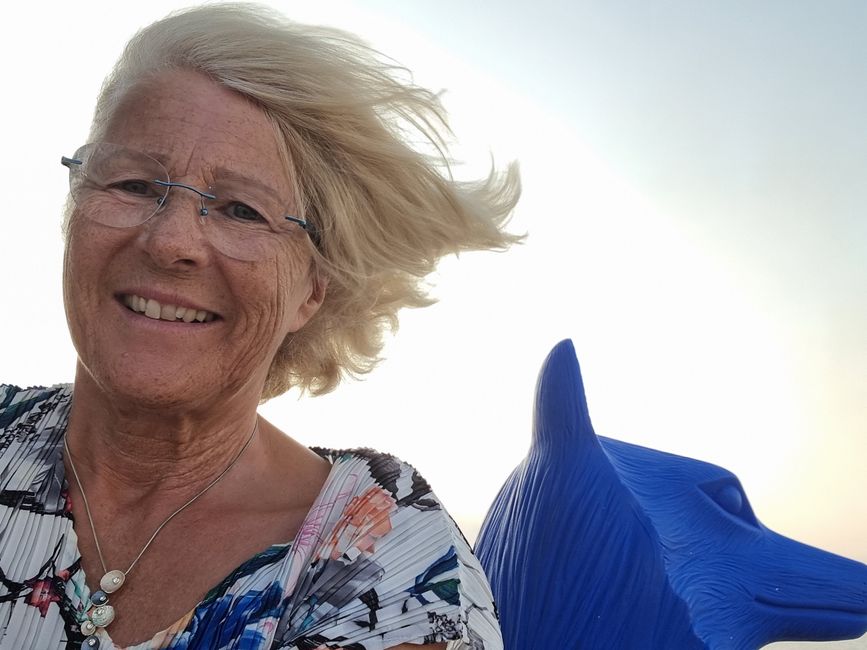Singapore, a unique city
Foillsichte: 17.06.2023
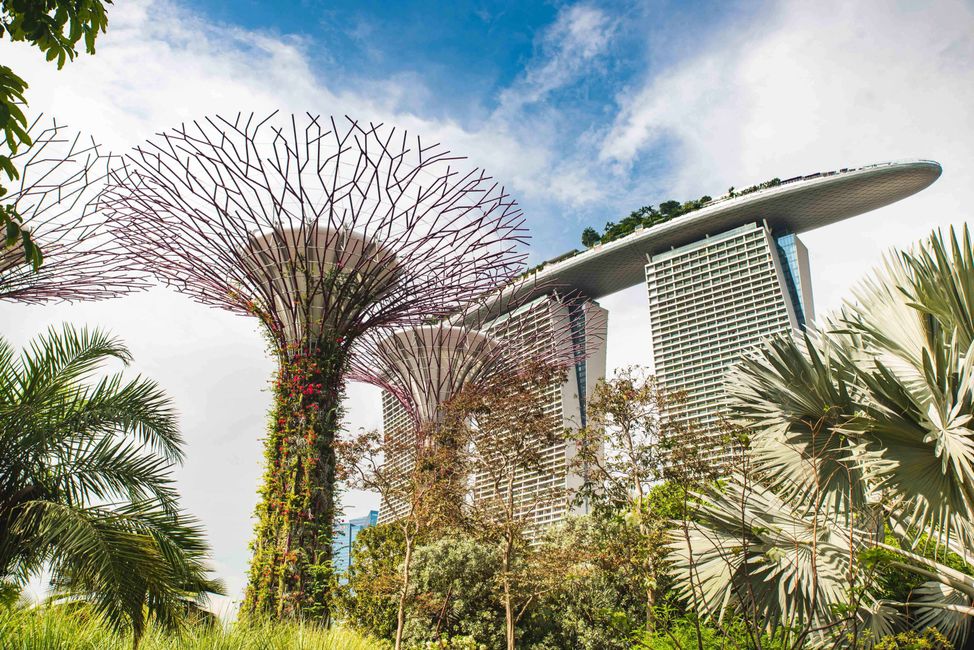
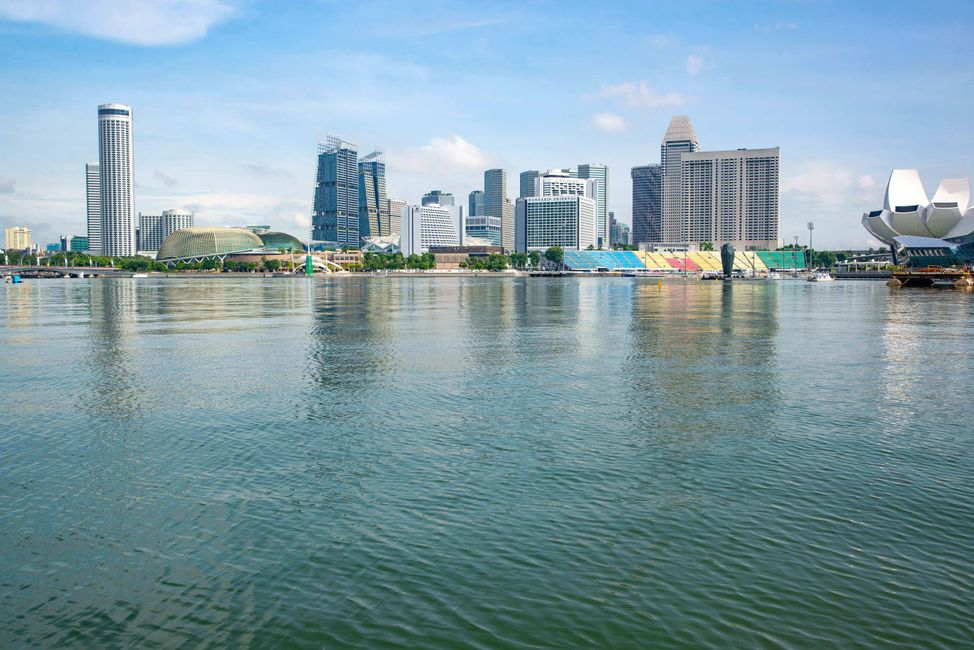
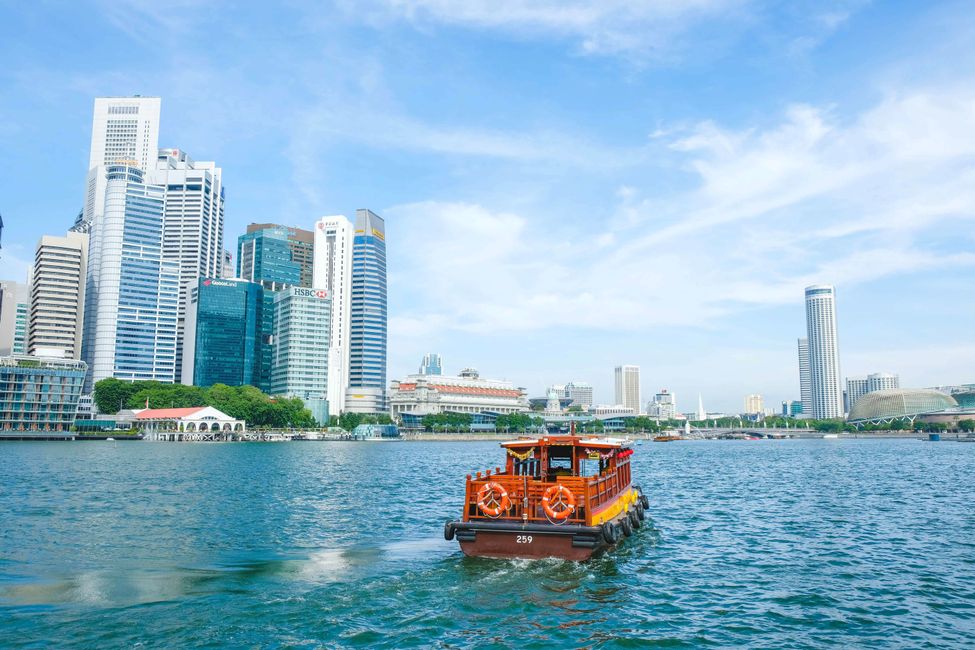
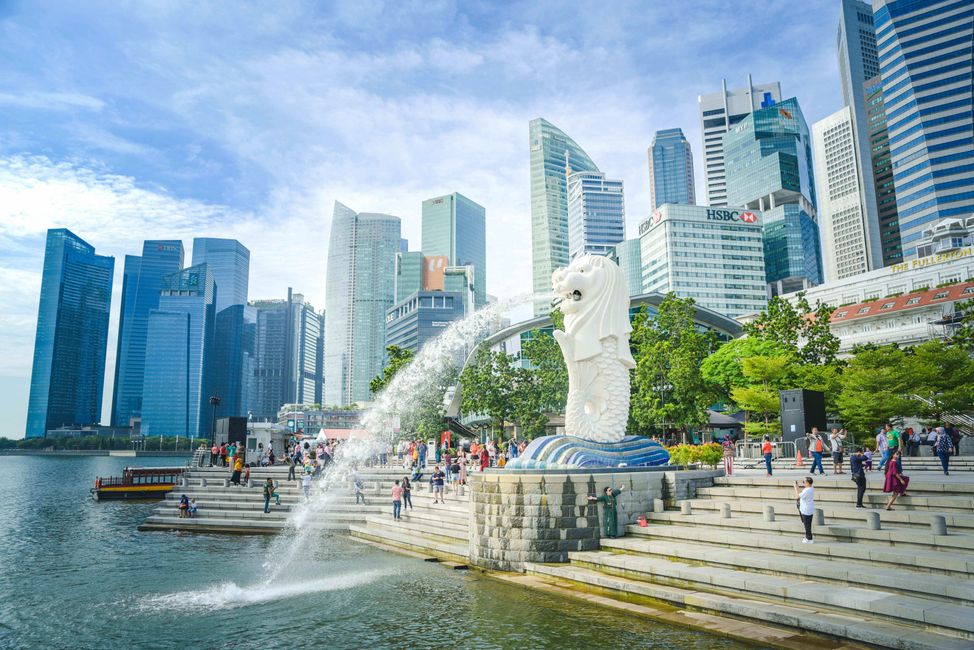
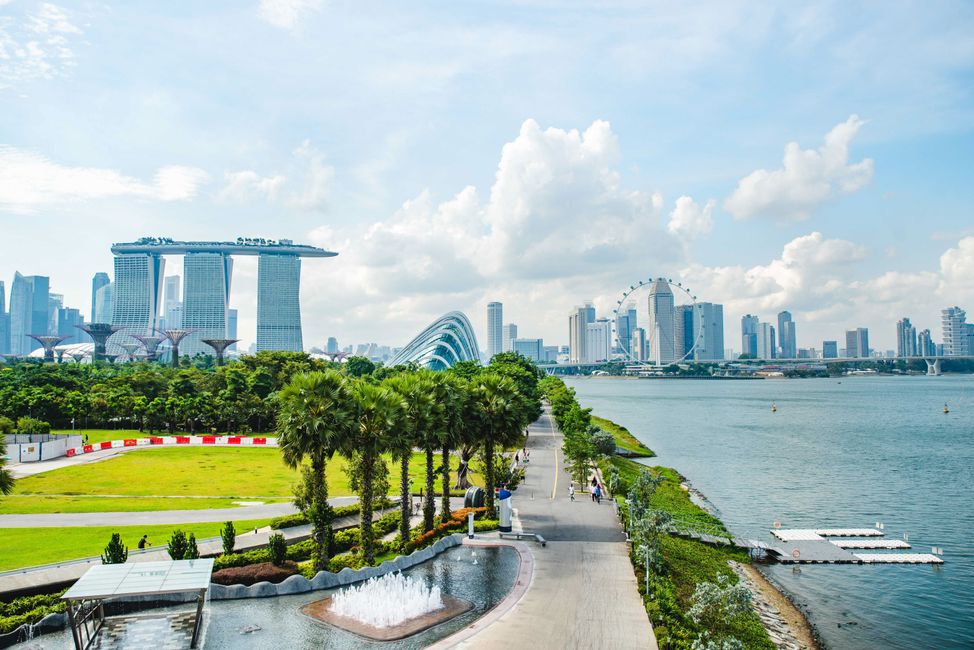
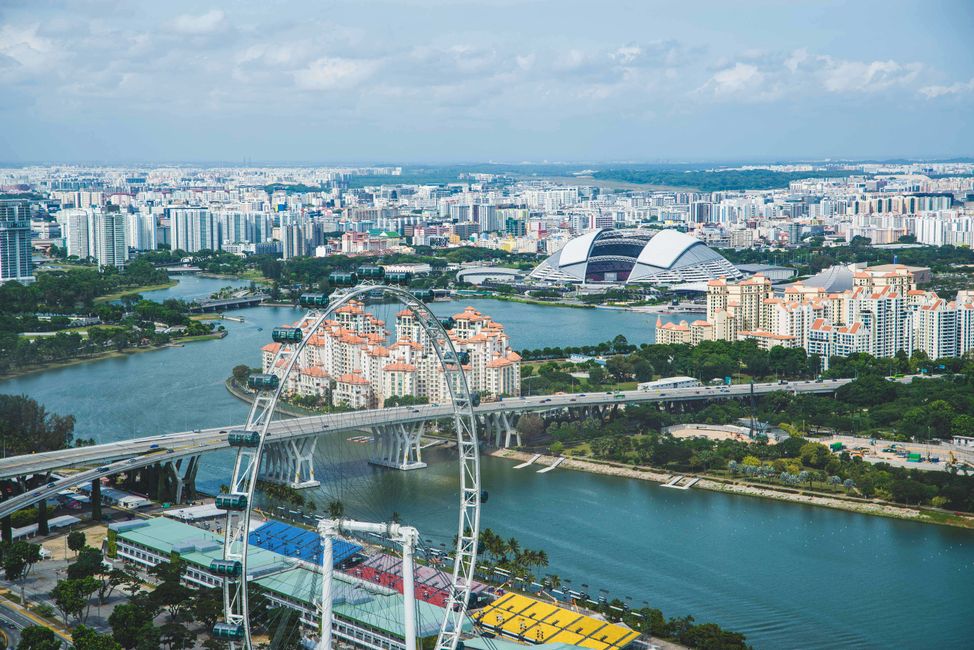
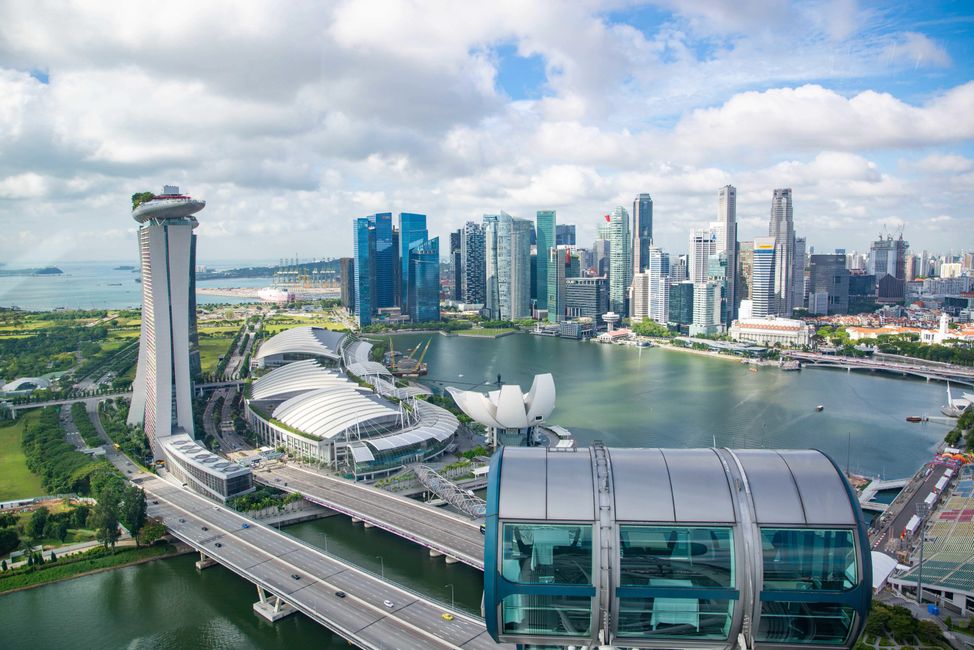
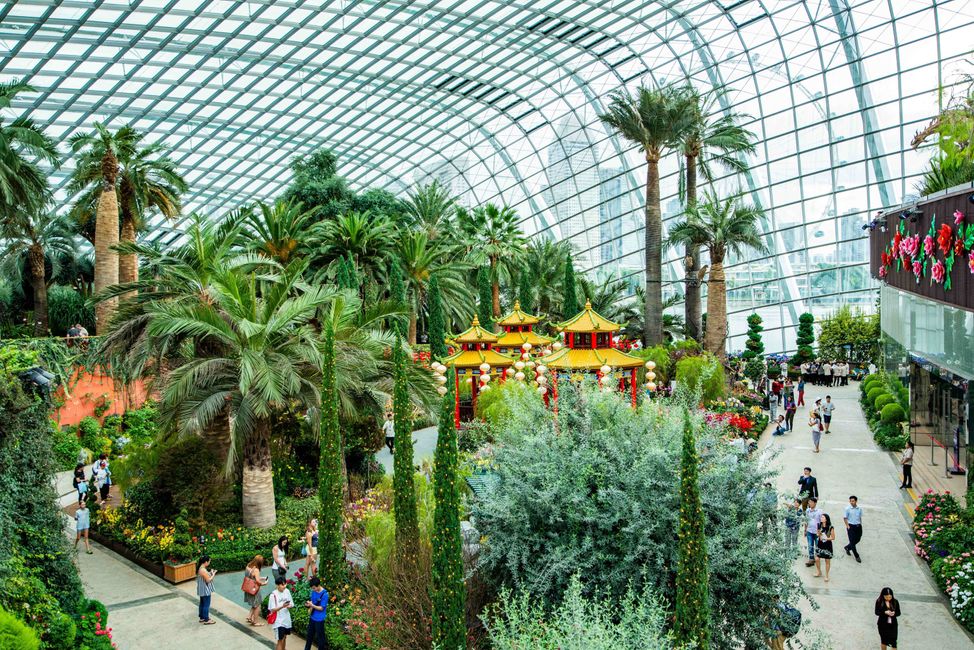
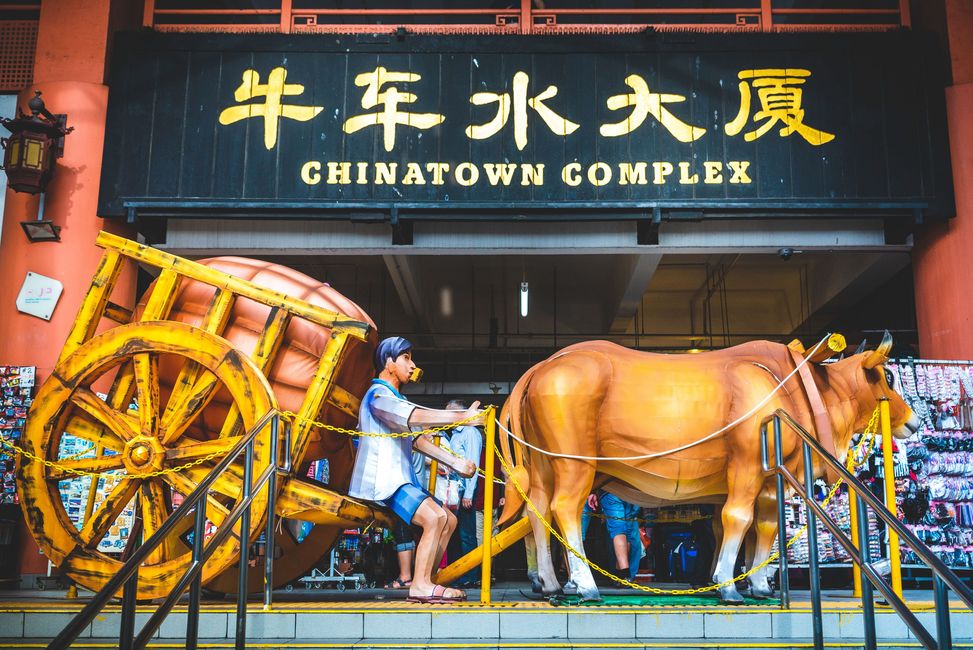
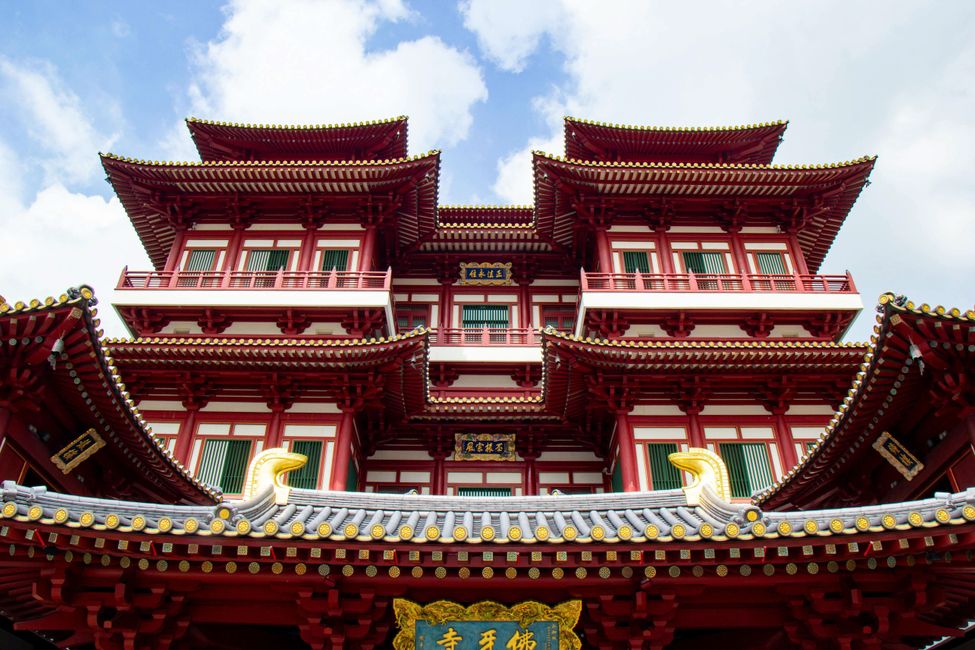
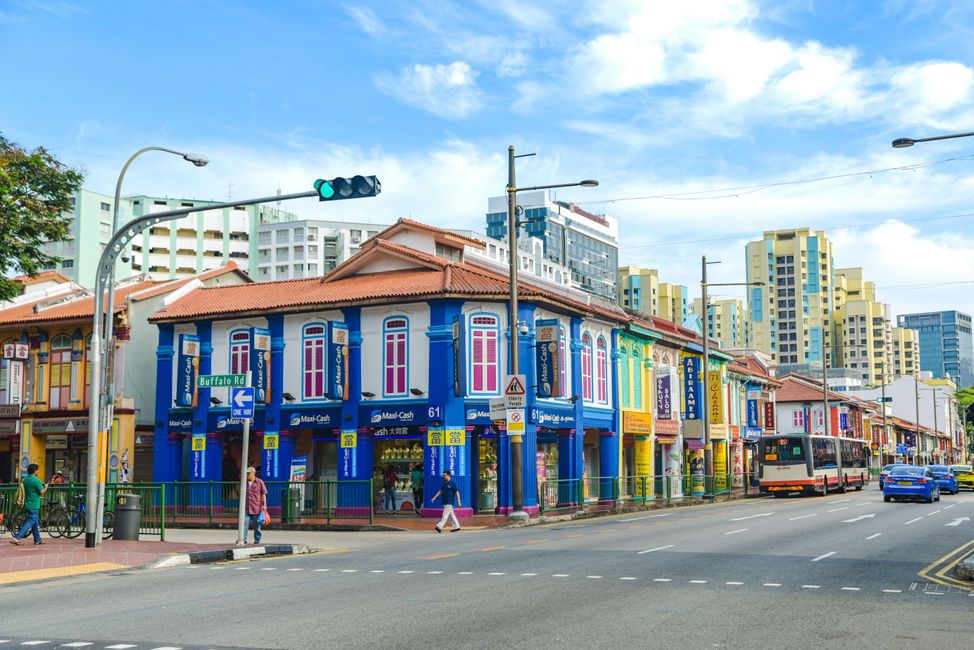
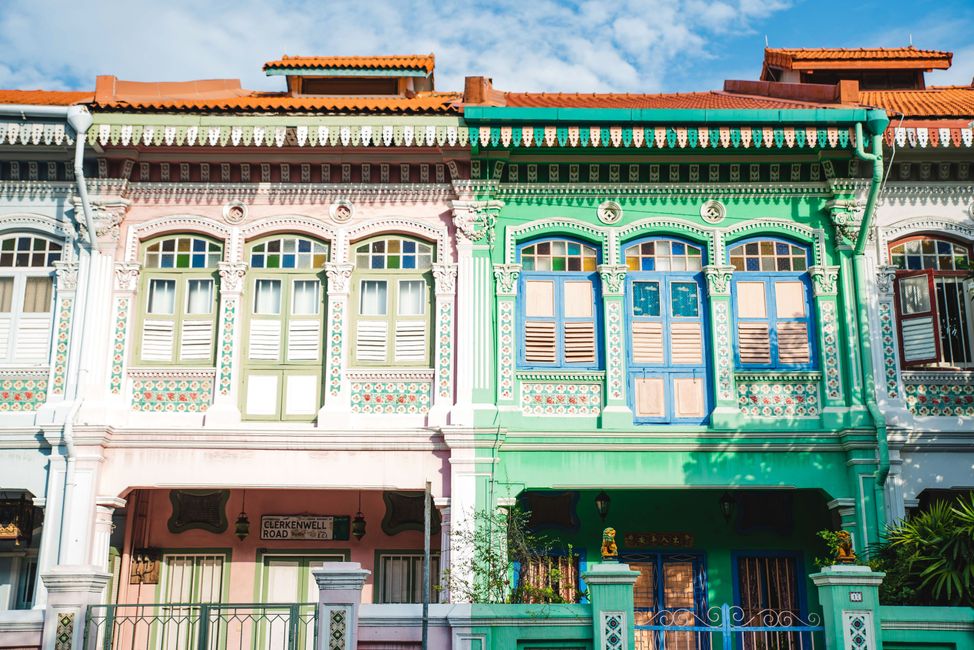
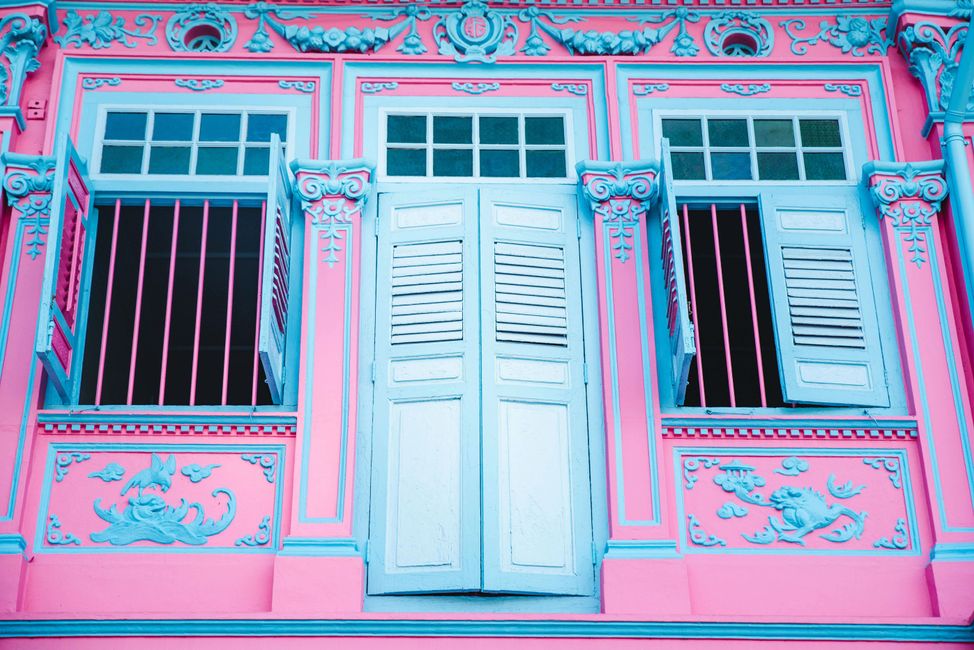
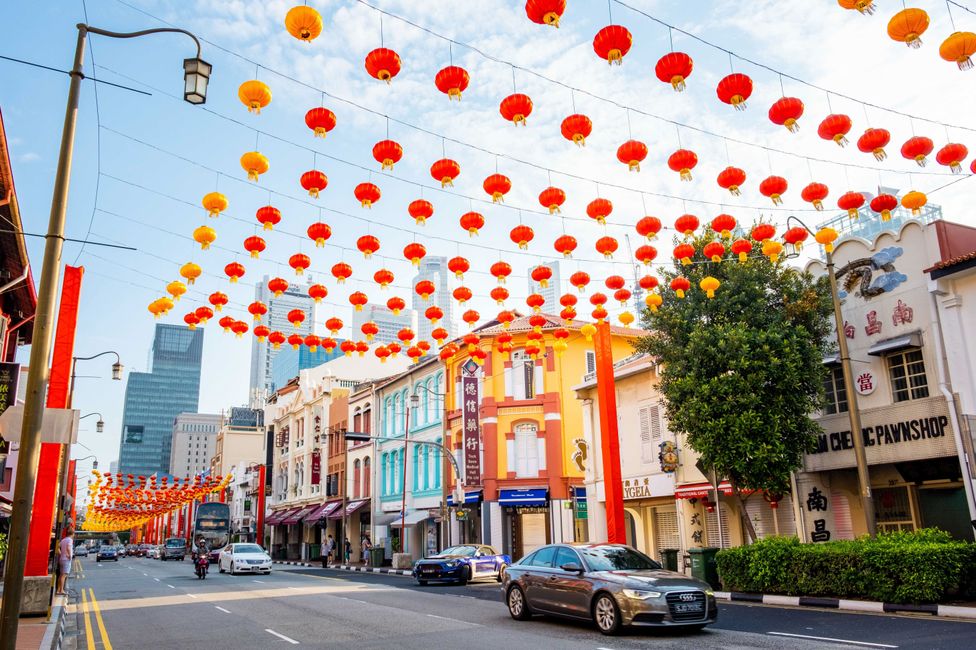
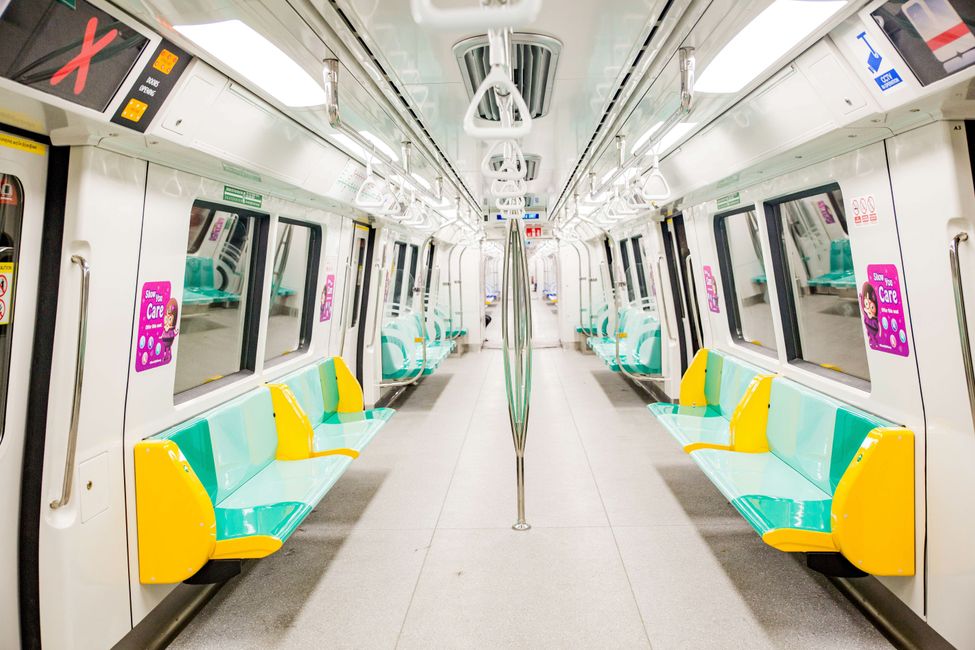
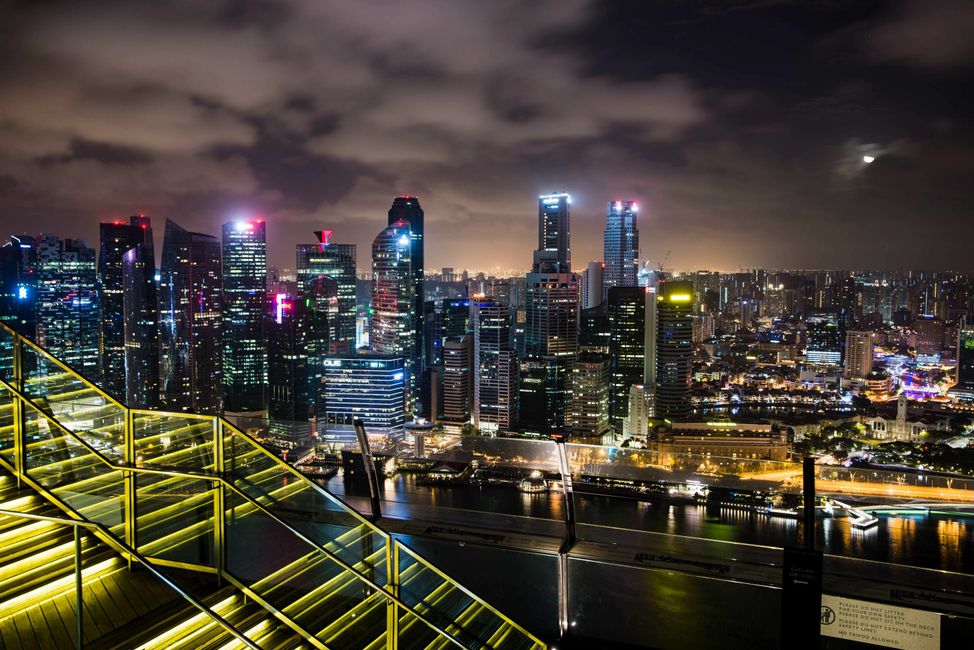
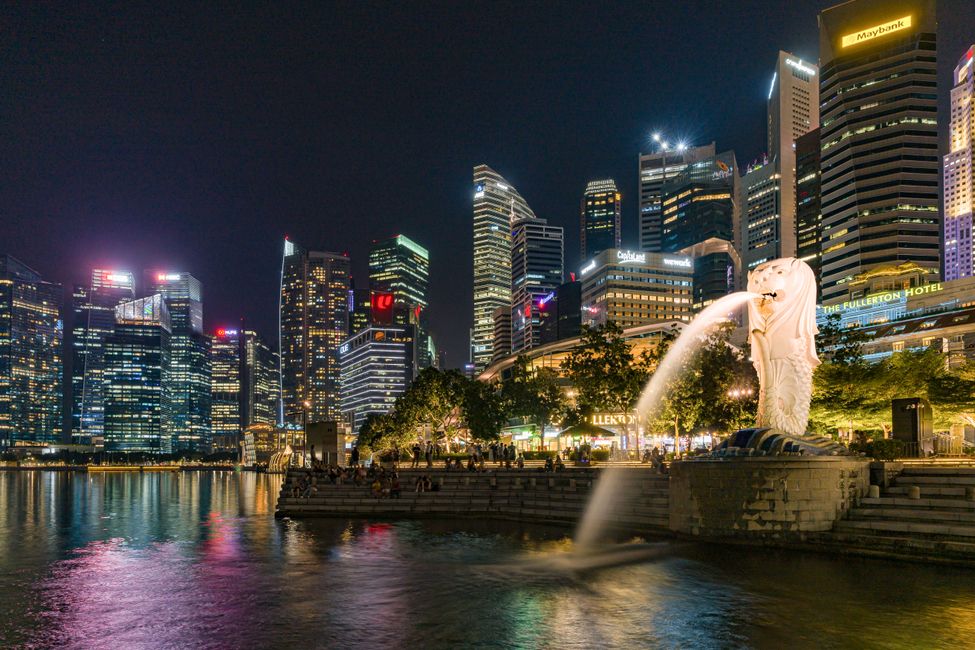
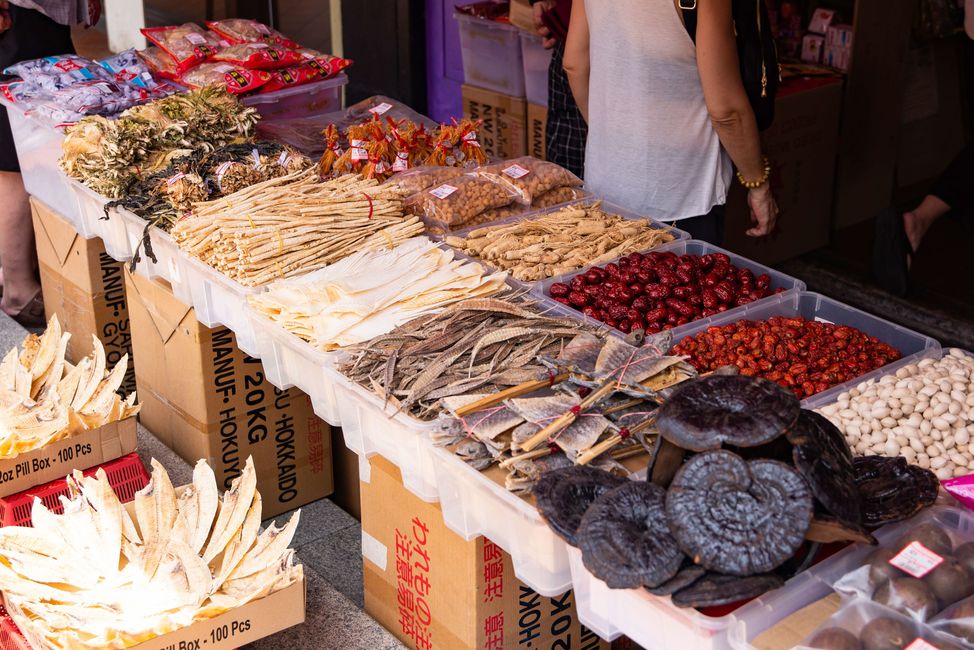
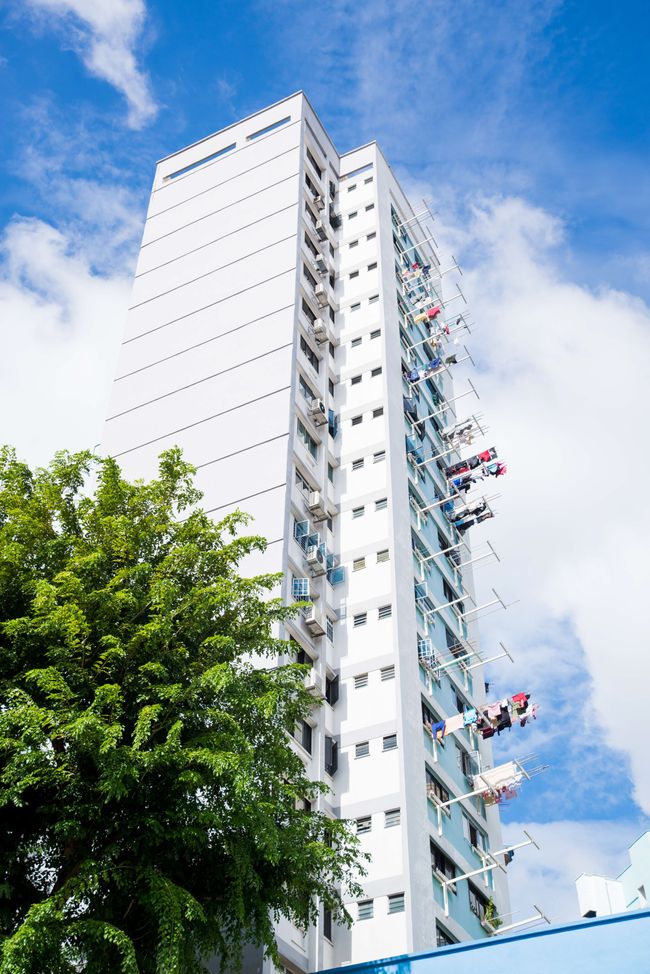
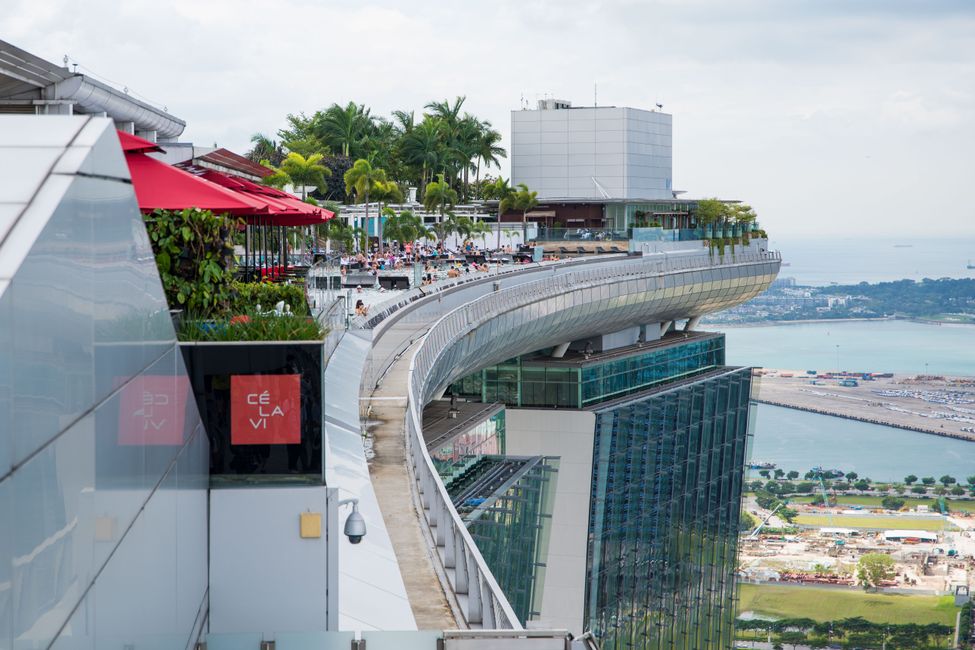
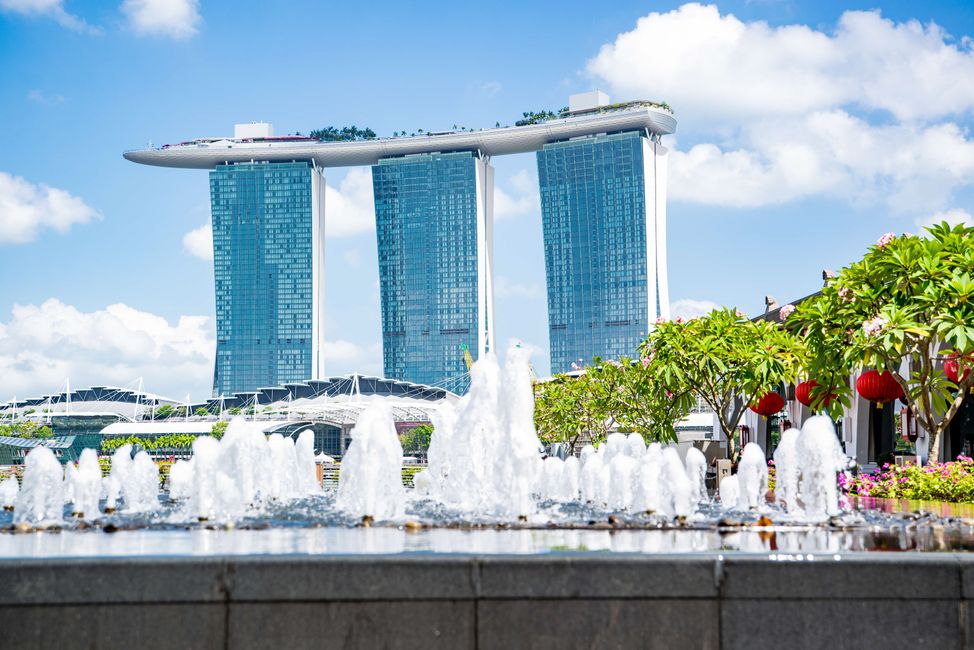
Subscribe to Newsletter
From half past eight in the morning, we started sailing into the cruise terminal in Singapore. There was a hustle and bustle of small and larger ships alongside us during the entrance. Tugs with water cannons accompanied us. It was a great sight. From our cabin, we had a great view of the most famous hotel Marina Bay Sands and the ferris wheel.
Three days before arrival, we had to fill out an entry registration online, which all passengers and crew on board were required to do. The internet was briefly made available for filling out the form. The security measures in Singapore are very high. In my opinion, a bit exaggerated. For the land excursion, the barcode of this entry registration, a vaccination certificate, and of course, the passport were necessary.
We had decided to explore Singapore on our own with two friends. We tried to disembark from the ship at 11 o'clock. However, it took over 45 minutes to pass through the security checkpoint. We were not the only guests who wanted to get off the ship. The staff were probably not prepared for this number of passengers. Facial photos were taken, fingerprints were taken, and some questions were asked. It was like going through immigration in New York.
We then took a taxi to the Marina Garden as it was too hot and humid to walk. The garden is beautifully designed. The abundance of greenery made it bearable.
A visit to the lobby of the hotel was also a must. It is indeed a gigantic hotel. A bridge across the street led to the exclusive shopping center with lots of Christmas decorations. In the basement, you could take gondola rides like in Venice. There were only the most prestigious and expensive shops. I saw many Chinese people and their children proudly walking through the corridors with Louis Vuitton bags. The shopping center is designed with lots of glass, making it very airy. But I also found it a bit sterile.
We then got hungry and went to a small restaurant with an outdoor terrace. Dallas Burger was served here. The lamb burger that Wolfgang ordered tasted very good. It was worth the price. The bill amounted to 82 Singapore dollars. An additional 10% was added for the service and 7% in taxes were added to everything, making the burger cost a total of 97 Singapore dollars. The prices show that Singapore is a city with a lot of money.
Singapore is very clean. Chewing gum is prohibited, and cigarettes cannot be brought in. The police often patrol the promenades.
We wanted to briefly go back to the ship to freshen up as we had booked a tour for the evening. It took a very long time again until we passed through the entry control.
We were also back at the control 30 minutes before the departure time for the booked evening tour. The same long procedure of taking photos and fingerprints.
Some travelers gave up in frustration as the tours had already started.
This time we took a private tour with USD Holliday. Good prices and especially with a very funny German-speaking tour guide, who sometimes couldn't remember certain terms. Everyone was hanging on her every word in case they could help out. So she had our attention
On the way to our first stop, we learned a lot about the city-state.
Singapore in the evening, where modern and old Asia meet. 18th-century buildings compete with skyscrapers, small street food stalls with expensive restaurants. People of all religions and skin colors coexist in a small space.
Kampung Gelam
The British colony "Singapore" was divided according to ethnic groups. The Kampung Gelam was intended for the Sultan, his household, and the Malay and Arab community, many of whom were merchants.
The streets are filled with many old business houses. New tenants such as IT companies, curiosity shops, cafes, bars, and restaurants blend in with traditional textile, carpet shops, blacksmiths, and religious stores.
Little India
Around Serangoon Road lies the ethnic neighborhood of Little India, where you can experience Singapore's Indian community up close – from the lively culture to fantastic shopping opportunities. There are not as many visitors here as in the other neighborhoods.
But there are also many beautiful temples here.
Originally, this region consisted of inhospitable swamp land until the first brickworks and lime quarry were established here around 1820 by an Indian. Indian workers from Madras, Kolkata, and Malaysia quickly moved in. In addition to other brickworks, there were milk and livestock farming along the Rochor River, which attracted more Indian laborers. This special district, which is still almost 100% shaped by Indian culture, was created.
There are also some shopping centers in Little India, similar to a department store. When visiting, strict control is carried out, and bags or packages must be handed over to the stern-looking security guard. Inside the department store, you can find everything your heart desires. Tropical clothing, 100% cotton incense sticks, electronics, silk, leather goods, or hundreds of different items. And the prices are much lower here than in the rest of Singapore.
It was gradually getting dark, so the next stop was a ride on a Bumboat, it went along the Esplanade, over the Boat Quay, Clarke Quay, and Clemenceau to Robertson Quay – so practically through downtown along many famous sights such as Marina Bay Sands, the Merlion, and the statue of Sir Stamford Raffles.
Unfortunately, we were too late to see the water fountain show in front of the aforementioned shopping center. When we returned to the pier, it was already dark.
So we went back to the Marina Garden. There was a special Christmas event set up. There was a light show with Christmas music, but it didn't impress us. We had imagined something different. The entrance fee was too high for that. But the children present loved it. It's a matter of taste. We were actually looking forward to the illuminated trees in the dark.
Subscribe to Newsletter
Freagairt
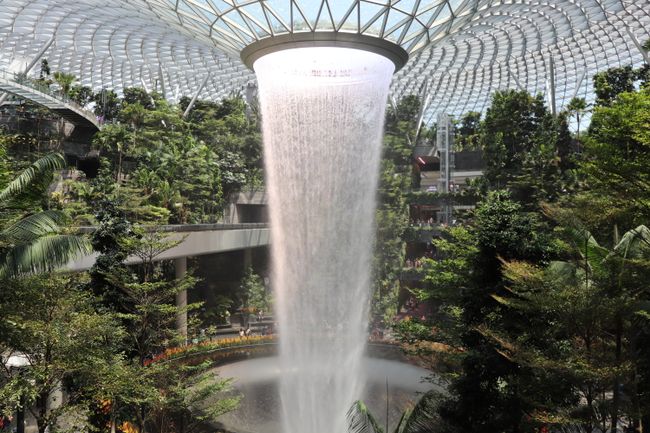
Aithisgean siubhail Singapore

